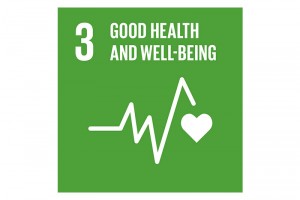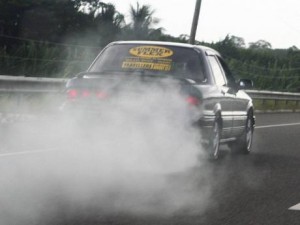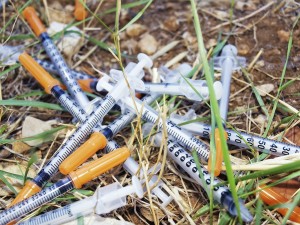
Health Care Reform: Promoting Wellness and a Healthy Environment
June 9th, 2016
Health Minister Dr. Christopher Tufton has been doing a good job so far at keeping the Jamaican public informed on the strange complexities of the Zika virus. My husband and I recently had a bout of it; the only good thing about it is that it doesn’t last long. His huge portfolio, however, extends well beyond the urgency of mosquito-borne diseases to include many long-term issues. I attended a G2K (Kingston and St. Andrew Chapter) Forum on Health Care Reform recently (subtitled Sustainability for Quality and Financial Viability) which provided some interesting and useful angles on the current state of our health sector, and what we call, with a hopeful air, “the way forward.”
In addition to the Minister there were two other speakers who brought their own perspectives, without contradicting or repeating each other. Eleanor Jones is Managing Director of Environmental Solutions, a firm which regularly monitors air quality in Kingston and elsewhere. By the way, as we know, respiratory ailments have been on the increase in Jamaica for quite some time, including among our youngest citizens. The Chairman of the G2K chapter, Edson Carr, told us that as an asthmatic himself he is a regular visitor to the Spanish Town Hospital. Ms. Jones referred us to the outcome document of Rio + 20 (the conference in 2012), entitled The Future We Want. If we are talking about environmental issues, though, why should the health sector take the lead? Because health is one of those “cross-cutting issues,” and as the Rio + 20 document notes, it is a “pre-condition” for social, economic and environmental progress, providing the platform for sustainability. So, we need to link our various government portfolios with health: transport/health, energy/health, industry and commerce/health, gender affairs/health, and so on.
In the UN Sustainable Development Goals (SDGs), there is only one health goal – Ensure Healthy Lives and Promote Wellbeing for All at All Ages – but there are nine targets. If you think SDGs don’t matter, by the way, I would disagree with you. The SDGs help us to focus. They not only help Governments to align their goals and plans correctly (such as Jamaica’s Vision 2030 plan); they also offer us ordinary citizens a reference – a kind of “checking in” point to see what we should be aiming for. And the Health goal is – well, huge. The ninth target, interestingly, relates to Ms. Jones’ area of concern: “By 2030, substantially reduce the number of deaths and illnesses from hazardous chemicals and air, water and soil pollution and contamination.”
If you don’t think air pollution is a major issue both on our island and globally, think again. According to the National Environment and Planning Agency (NEPA) the number of motor vehicles on our roads doubled between 1993 and 1999. Along with emissions from the bauxite industry in particular, cars emit particulate matter, volatile organic compounds (including benzene, which causes cancer) and carbon monoxide into the atmosphere. Particulate matter is especially problematic for children, since their small lungs cannot cope. We haven’t fully quantified the long-term harm of last year’s major fire at Riverton City, said Ms. Jones (and let’s remember, there were fires in previous years, too).
But what can we do about all of this?
Well, we can clean up our act, literally. Governments need to set proper emission standards, and enforce them, regularly checking cars, trucks and buses (still, in 2016, we see some belching black smoke in a line of traffic). We need to get our cars serviced regularly, and perhaps consider using our cars less. Plan our trips, share transport where possible, reduce the amount of harmful chemicals we pour into the air daily. We must stop burning – that awful habit of Jamaicans, which still happens in urban and rural areas when we’re tidying up an area. Did you know the health sector itself creates emissions, burning medical waste? We need to install biodigesters there. We must plant more trees, too; deforestation and the degradation of our watersheds exacerbates air quality issues.
So, if we want growth and prosperity (our two favorite buzzwords in Jamaica nowadays) we won’t get far without good health and decent health care. As far as the health of our environment is concerned, we have to take responsibility. Citizens must partner with the State – and with each other – to take action. If we are not seeing speedy action on water leaks, sewage leaks, garbage collection and so on, then we must pressure government agencies to deal with the problems. We must play our own part by disposing of our garbage properly and cultivating clean and healthy habits.
We are always being told to take responsibility for our health – to get regular check-ups, and so on. We should be doing the same to ensure the health of our surroundings – because surely, that will help us to thrive and be well.
Tags: air quality, bauxite mining, carbon emissions, children, Christopher Tufton, deforestation, Eleanor Jones, Environmental Solutions, garbage disposal, Jamaica, medical waste, Ministry of Health, National Environment and Planning Agency, NEPA, Rio + 20, Riverton City, sewage, sustainable development, Sustainable Development Goals, Vision 2030
The Gleaner reserves the right not to publish comments that may be deemed libelous, derogatory or indecent.
To respond to The Gleaner please use the feedback form.
- We Are the Zoomers
- Living Online with Humans and Birds: NAOC 2020
- Human Trafficking and the Problem of Public Education
- Down Memory Lane
- Are We Ready to Recover from COVID-19?
- Road Safety Matters: Is Your Vehicle Safe?
- Sexual Harassment, Me Too, and the Minister’s Disturbing Giggle
- The Vulnerable Senior Citizens, Private Care Homes and COVID-19
- A Muddle Over Masks
- Here is Something Life-Saving You Can Do: Give Blood!






